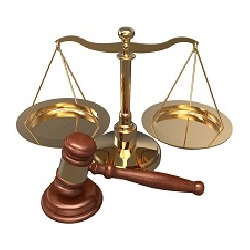|
What Happens to My Gambling Debt in Bankruptcy If you have incurred excessive gambling debt and want to file for bankruptcy, you need to consult a lawyer to find out your bankruptcy legal options. Gambling debt is considered as unsecured debt but there are situations where these debts can be a bit complicated. For the […]
from https://www.bankruptcyattorneyhouston.us/gambling-debt-and-bankruptcy-options/
2 Comments
TX Credit Card Lawsuits and Bankruptcy Credit Card companies and or assignees of Credit Card Companies file lawsuits to collect past due Credit Card accounts almost every day in Texas. But you can stop such a lawsuit by filing for bankruptcy because Credit Card debt is considered unsecured debt. You will need to consult a […]
from https://www.bankruptcyattorneyhouston.us/texas-credit-card-laws/
Writing Bad Checks in Texas A hot check is a check that a bank cannot pay because there are insufficient funds in the account to pay the check or the checking account does not exist at all. It does not matter how nominal the check is because in Texas writing a bad check is a […]
from https://www.bankruptcyattorneyhouston.us/texas-hot-check-law-and-bankruptcy/
Bankruptcy and Stopping Foreclosure There can be some confusion as to whether you need to consult with a real estate attorney or bankruptcy lawyer, but the landlord cannot throw you out just because you owe rent but a court can compel you to leave your home. Your landlord cannot go to where you live and […]
from https://www.bankruptcyattorneyhouston.us/emergency-bankruptcy-to-stop-foreclosure/
Unlike Chapter 13 individual debt adjustment and Chapter 11 reorganization, only few people file a Chapter 12 bankruptcy in Texas or in the nation. A Chapter 12 bankruptcy is used mostly for “family farmers” of “family fishermen” whose have debts that add to a certain amount. Fishing or farming should also be the primary source […]
from https://www.bankruptcyattorneyhouston.us/chapter-12/
Debt Consolidation Loans vs Bankruptcy There are other options you can pursue when bankruptcy is not the best alternative. In most cases it is your assets and employment situation that determines whether these alternatives are available for you. Eliminating your debt through bankruptcy offers you the opportunity to avoid paying the loan in full but […]
from https://www.bankruptcyattorneyhouston.us/debt-consolidation-vs-bankruptcy/
At one time or another you may experience financial woes due to things that are out of your control. These include recessions, medical emergencies or even a changing business climate. You may find yourself unable to pay your creditors in such situations and bankruptcy may not be the best option. Common Personal Bankruptcy Alternatives Most […]
from https://www.bankruptcyattorneyhouston.us/bankruptcy-alternatives/
You can look at the Texas bankruptcy exemptions chart to see whether you can protect the property you value from creditors. Everything you own is placed into a bankruptcy estate when you file for bankruptcy but exemptions let you keep some of your property without paying for it. However, you should remember that there are […]
from https://www.bankruptcyattorneyhouston.us/texas-bankruptcy-exemptions/
You are required to repay your creditors some or all of the debt according to a Bankruptcy court approved repayment plan under a Chapter 13 Bankruptcy. Filing Chapter 13 in Texas A Chapter 13 allows you to keep secured assets such as a home or car. But you can only keep them if you have […]
from https://www.bankruptcyattorneyhouston.us/chapter-13-bankruptcy-texas/ Call the Houston bankruptcy attorneys at 832-975-0366
Our office offers no obligation consultations with a licensed bankruptcy lawyer. We would be happy to evaluate your case.
Give us a call today 832-975-0366
Struggling with debt?
We can help you get immediate debt relief (student loan, IRS, all forms of debt). Call now to speak to our bankruptcy lawyers in Houston, TX.
Bankruptcy Costs & Fees
Exceprt from: Our Main Website
Attorney fees can vary based upon:
Excerpt from: https://www.nolo.com/legal-encyclopedia/chapter-7-13-bankruptcy-basics-29829.html
Bankruptcy is a process in which consumers and businesses can eliminate or repay some or all of their debts under the protection of the federal bankruptcy court. For the most part, bankruptcies can be divided into two types -- liquidation and reorganization. Chapter 7 bankruptcy comes under the liquidation category. It's called liquidation because the bankruptcy trustee may take and sell ("liquidate") some of your property to pay back some of your debt. However, you may keep property that is protected (also called "exempt") under state law. There are several types of reorganization bankruptcies, but Chapter 13 is most commonly used by consumers. In Chapter 13 bankruptcy, you keep all of your property, but must make monthly payments over three to five years to repay all or some of your debt. Both Chapter 7 and Chapter 13 bankruptcy have many rules -- and exceptions to those rules -- regarding which debts are covered, who can file, and what property you can and cannot keep. |
about us(832) 975-0366 Archives
October 2017
Categories |

 RSS Feed
RSS Feed
